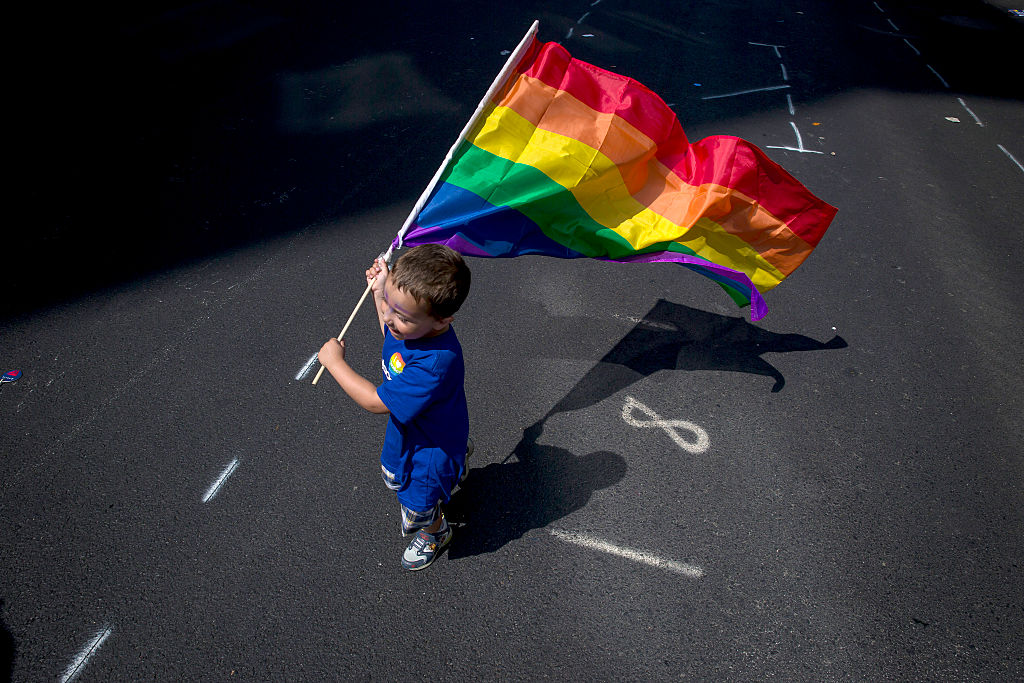As time goes on, the stories of detransitioners — individuals who once identified as transgender, but then reverted back to identifying with their biological sex — become more and more prevalent.
Often, these cases involve young adults who socially and physically transitioned as children. It isn’t until later, upon reaching adulthood, that they often realize they made a mistake.
While detransitioners can socially transition back to identifying with their biological sex, the physical consequences of transitioning in the first place — alterations caused by hormone therapy and other gender reassignment treatments — remain permanent.
Nevertheless, on Jan. 7, a Canadian law banning the so-called “conversion therapy” of LGBT youth went into effect.
The law criminalizes “causing another person to undergo conversion therapy,” removing a child from Canada with the intention of providing conversion therapy in another country, advertising conversion therapy and receiving a financial “or other material benefit” from the use of conversion therapy.
In previous iterations, the term “conversion therapy” referred solely to a practice, treatment or service designed to transition a person’s sexual orientation from homosexual to heterosexual.
Under the new Canadian law, the definition of “conversion therapy” has been expanded to include services/treatments that seek to accomplish the following:
- “change a person’s gender identity to cisgender” (“cisgender” refers to individuals who identify with their biological sex)
- “change a person’s gender expression so that it conforms to the sex assigned to the person at birth”
- “repress a person’s non-cisgender gender identity”
- “repress or reduce a person’s gender expression that does not conform to the sex assigned to the person at birth
Even if transgender individuals seek out such care, it appears that even these instances qualify as illegal.
“The law sadly uses terms and words that misrepresent biological facts,” Walter Heyer told The Western Journal via email.
Heyer, a detransitioner himself, runs the Sex Change Regret website, which is aimed at providing resources and guidance to prospective detransitioners attempting to cope with the often permanent consequences of their gender transition.
“The only criminals are the operators of ‘gender clinics,'” Heyer wrote, “because they use hormones and surgery to ‘change a person’s gender expression.'”
“They should go to jail because they are the only ones who diagnose young children with gender dysphoria for the express purpose of dehumanizing children by ignoring biological facts.”
“The fact is gender is innate and unchangeable at the moment of conception when the sperm is introduced to the egg.”
Heyer believes the “gender clinics” are “‘housing’ for the real criminals.”
“I say lock them up,” Heyer wrote.
While the “conversion therapy” law does explicitly ban the detransition of transgender individuals, it does not appear to outlaw the reverse.
If progressive parents and physicians choose to give sex change therapies to minors — children too young to consent to such life-altering decisions — there is no such law preventing them from doing so.
In other countries, such practices have been outlawed.
On Dec. 1, 2020, for example, Britain’s High Court ruled that children under 16 years old are unlikely to be able to give informed consent to “gender-affirming” medical treatments, including those that involve drugs and puberty blockers.
The ruling even went as far as to assert that such treatments qualified as child experimentation.
The suit was brought forward by two claimants, Keira Bell — a formerly transgender individual who transitioned back to identifying with her biological sex — and the mother of a 15-year-old autistic girl who had been on the waiting list for treatment.
It’s no surprise an autistic girl found herself at the center of this case. As noted by sex researcher Debra Soh in a Dec. 21, 2021, article for the Washington Examiner, children with various disorders that cause identity confusion often experience “rapid-onset gender dysphoria.”
Autistic children are given hormone blockers rather than behavior therapy. Victims of childhood sexual abuse are treated the same when they should be dealing with their trauma. In these cases and many others, underlying issues that could be causing dysphoria remain untreated.
“There is zero science supporting the concept of gender fluidity. Science does, however, support the existence of rapid-onset gender dysphoria, an epidemic of adolescent girls and young women who suddenly announce their desire to live as male or ‘nonbinary’ despite having no previous history of gender dysphoria,” Soh wrote.
“In most cases, their decision stems from issues unrelated to gender identity, including sexual trauma, having an eating disorder, discomfort with their sexual orientation as a lesbian, or being on the autism spectrum. The idea that educators should ‘affirm’ a child’s gender not only oversteps parental boundaries but is unscientific.”
In Bell’s case, she believes she was “treated like an experiment.”
“A lot of girls are transitioning because they’re in pain, whether it’s from mental-health disorders, or life trauma, or other reasons. I know what it’s like to get caught up in dreaming that transitioning will fix all of this,” Bell wrote.
“I do not want any other young person who is distressed, confused, and lonely as I was to be driven to conclude transition is the only possible answer.”
“I was an unhappy girl who needed help. Instead, I was treated like an experiment.”
She started on puberty blockers at 16,then had cross-sex hormones for 4yrs, underwent double mastectomy to have breasts removed.
She now REGRETS it all and is suing the organization that cheered her on to “transition”.
Many lives are being destroyed in this make-believe world. pic.twitter.com/ys7Xr27oJK
— Obianuju Ekeocha (@obianuju) March 7, 2020
Thanks to the “gender-affirming” care given to Bell — and currently being given to many Canadian children — she has lost both breasts, her voice is permanently changed, she suffers from “vaginal atrophy” and she may very well be infertile.
Despite all of this, Canada has officially outlawed children like Bell from receiving the requisite treatment.
This article appeared originally on The Western Journal.

























 Continue with Google
Continue with Google